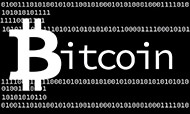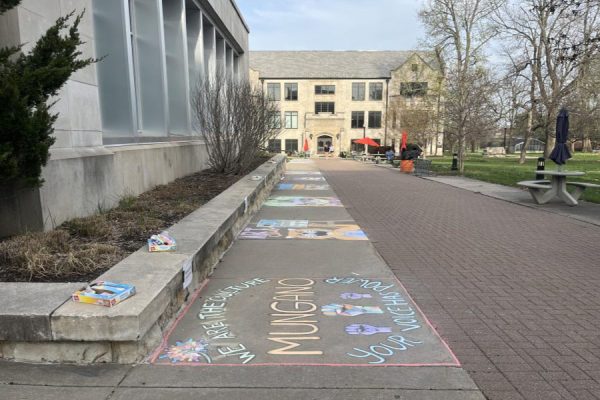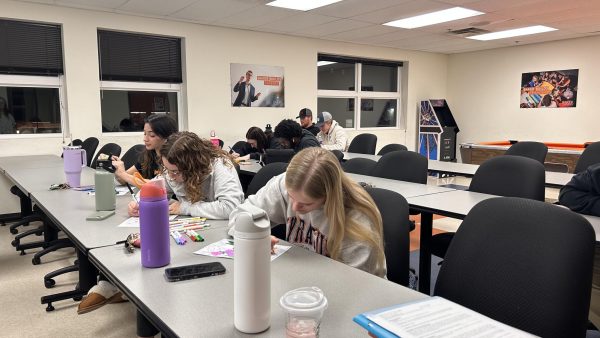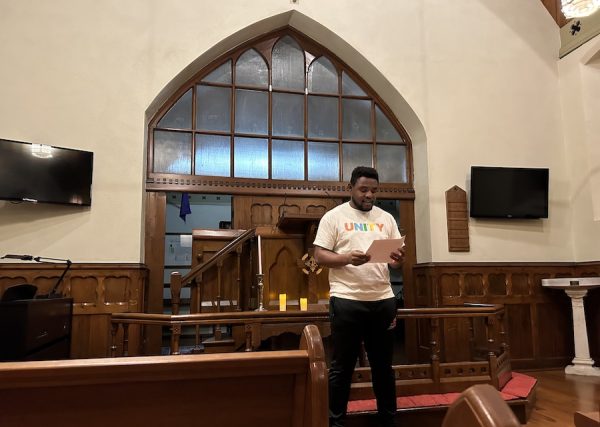Bitcoin sparks local interest
It has been associated with fraud, risk and anarchy, yet many questions still exist about what will come next for the new trend in currency, Bitcoin.
INTERACTIVE PROJECT
 MORE ABOUT BITCOIN – A special interactive project provides recent exchange rates and a timeline.
MORE ABOUT BITCOIN – A special interactive project provides recent exchange rates and a timeline.
Bitcoin is a peer-to-peer online payment system that operates without any central authority. The capitalized word, Bitcoin, refers to the network and technology itself, while a lowercase bitcoin refers to the unit of account, like the dollar or the euro.
To one local artist, bitcoins signify more than just money. For Lawrence Percolator art gallery co-chair Walt Ohnesorge, bitcoins were an inspiration for an art project.
“I’m kind of an anarchist, so I believe in it on a more personal level than your average investor,” Ohnesorge said. “Bitcoin is pretty abstract, but it got me thinking about the way that we use money and what gives money value.”
Ohnesorge owns two bitcoins, which he bought at two different times last fall. While two bitcoins might not seem like very much, Ohnesorge said bitcoins can be divided up to eight decimal points. As for what Ohnesorge plans to do with his bitcoins, he says he’ll “sit on them like a fat cat” and wait and see what happens in the Bitcoin market.
“I’ll also put them into art to turn the art into a speculative commodity,” Ohnesorge said. “But the whole idea of the art is that the value of art is really subjective so this is a way for me to control a little bit of that subjectivity.”
Bitcoin was created in 2009 under the pseudonym Satoshi Nakamoto.
The purpose of bitcoins is for them to be used in place of legal tender currency, to make transactions between two parties easier no matter where they are in the world. A potential bitcoin user only needs to download a Bitcoin wallet onto a computer or smartphone to get started.
Bitcoins can then be bought, stored and traded using the wallets because each wallet has a numerical address to which bitcoins can be sent and received using a 16-character password, known as a private key, of the user’s choosing.
While it took a few years to gain traction, the popularity of Bitcoin has skyrocketed over the past several months, now reaching over 200 countries.
The price of bitcoins went from roughly 1,000 bitcoins for one U.S. dollar in 2009 to maxing out at one bitcoin for more than $1,000 last year. The price is currently around $450 for one bitcoin but continues to be volatile.
Ohnesorge said he convinced the board members of the Lawrence Percolator to accept bitcoins as payment for art pieces in the gallery. Even though the front window displays a sign that says, “bitcoin accepted here,” Ohnesorge said no one has used bitcoins to purchase anything yet.
While Ohnesorge has whole-heartedly invested in the Bitcoin movement (quite literally, as he has spent hundreds of dollars on his two bitcoins and has the address number of his bitcoins tattooed across his forearm), there are plenty of others who remain skeptical.
Senior business major Julian Mills said he could never see himself buying bitcoins, even though investment trading has become a favorite pasttime of his after he took an investing class last year.
“It’s just way too risky just because of all the things you cannot control,” Mills said. “With investing, you can somewhat manage your risk, but with Bitcoin, you can’t account for theft or hacking and it’s not insured by the FDIC.”
Lowell Jacobsen, Rhodes professor of international business, is skeptical about whether bitcoins should even be considered currency.
“There are three key characteristics of money that it would need to fulfill,” Jacobsen said. “The fact that people are using it to buy things from one another – that would fulfill one of the characteristics – that it’s being used as a means of exchange. But is it a unit of account? Is it a store of value? If it is a ‘yes’ to both of those questions, then it is money.”
The Internal Revenue Service (IRS) recently released a notice saying bitcoins would be taxed as property and were not recognized as a legitimate currency by the United States’ government.
While this move by the IRS has thrown uncertainty on the Bitcoin market, it has not been the only setback Bitcoin has seen in its short history.
In 2012, Bitcoin was infamous for allegedly being used in the black market, the Silk Road, to purchase illegal goods such as drugs. The fact that bitcoins are hard to trace makes it ideal for covert operations. Additionally, in February, an account known at Mt. Gox was hacked, resulting in the disappearance of $420 million.
Despite all this, Bitcoin backers remain confident in the technology and many are eager for the future.











